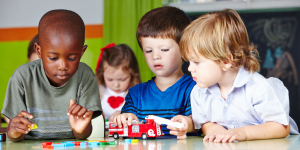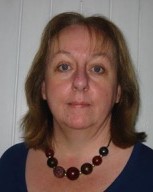Even if you have never thought about the history of early years education in England, the chances are you will have heard of Montessori and Reggio Emilia.
The Montessori and Reggio Emilia approaches were born out of a desire to build a better world for our children to inhabit, one in which they can live fulfilled, peaceful and respectful lives. It is hard to argue against the idea that this should be key purpose of any education system or practice.
Both approaches have much in common, and centre around the fundamental belief that…
Looking at the history, philosophy and key characteristics of these two approaches can help us understand how the roots of quality early years practice were established and how you can still use the best aspects of both in your practice today.
During a time of world upheaval, rising poverty, a pandemic and a dramatic increase in the number of people reporting mental health issues – maybe it is time to look more closely at how we educate and care for our youngest children, so we can build a better, stronger and more robust world for the future. What can we learn from Reggio Emilia and Montessori?
The town of Reggio Emilia in Northern Italy was the home of Loris Malaguzzi who developed a new approach to early years education. The chaos of the second world war had taken its toll on the community, resulting in chaos and destruction, and people were desperate to make positive changes to all aspects of society. Malaguzzi understood that if you wanted to build a community that was robust, caring, respectful and tolerant you needed to start with the child, as they will be the future adults who create and inhabit such a society.

Dr Maria Montessori developed a new approach to early education in the early 20th century. She was the first female medical doctor in Italy and was driven to observe how children engaged with materials and the world around them. Her work was particularly innovative as she refused to believe that children were unteachable or defective. Montessori lived through two world wars and was profoundly influenced by the impact they had on society. She wanted to develop the next generation to be more accepting and tolerant of each other, so that the world could be more peaceful. She was a pioneer of Peace Education and was nominated for the Nobel peace prize several times in her lifetime.

By revisiting these ground-breaking approaches in education it is hoped that we can gain some insight into what children really need to be able to learn and grow into respectful, caring adults. To help with this, here are some questions that you may want to use to reflect on your practice:
Re-watch Maureen Hunt’s webinar for Kinderly on the Reggio Emilia and Montessori approaches. Simply add your details here to access the recordings.

Maureen Hunt is an independent education consultant specialising in early years. She taught for over 20 years in nursery and infant schools and spent 15 years in leadership roles. Maureen is currently the Early Years Lead for Achievement for All where she is responsible for the design and the delivery of their award-winning early years programme “Achieving Early”. Maureen holds a BEd, a master’s degree in Education Management, the National Award for Special Educational Needs Coordination and the National Professional Qualification for Headship.